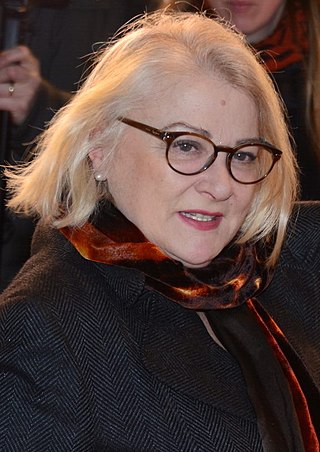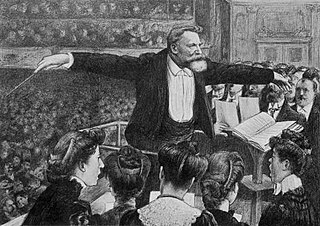You can help expand this article with text translated from the corresponding article in French. (September 2015)Click [show] for important translation instructions.
|
Marie Oppert is a French singer and actress, born in 1997.
You can help expand this article with text translated from the corresponding article in French. (September 2015)Click [show] for important translation instructions.
|
Marie Oppert is a French singer and actress, born in 1997.
Marie Oppert, daughter of musician parents, early starts the learning of the piano and the clarinet, and then during her childhood joins the choir of the College School of Paris (Conservatoire à rayonnement régional de Paris). She appears for the first time on stage in 2008 in the musical "Pinocchio's Journey" ("Le Voyage de Pinocchio") directed by Sandrine Anglade. In 2009, she plays Marta in the musical "The Sound of Music" ("La Mélodie du Bonheur") on the boards of the Théâtre du Châtelet ; for its 2011 repeat, she changes her part for Brigitta. Again in the Châtelet in 2013, she is the violinist of the British production of "Street Scene" from Kurt Weill. The very same year, she performs at the Salle Pleyel as "Mi Bémol" in "Le Clavier Fantastique", the children's opera of Graciane Finzi from Jules Verne. [1]
Her career takes off in 2014, when she first plays the young Alice from Lewis Carroll in the show "Alice, la Comédie Musicale" [2] directed by Marina Pangos, which then leads her to be Geneviève in "The Umbrellas of Cherbourg" from Jacques Demy and Michel Legrand at the Théâtre du Châtelet, together with Vincent Niclo, taking with success over the part crafted by Catherine Deneuve in 1964, in the movie from the same name.
Alongside her start in the acting profession, she succeeds in her exams of 2015 with the baccalaureate, and joins with enthusiasm the curriculum of the Marymount Manhattan College in New York City.

The Umbrellas of Cherbourg is a 1964 musical romantic drama film written and directed by Jacques Demy, with music by Michel Legrand. Catherine Deneuve and Nino Castelnuovo star as two young lovers in the French city of Cherbourg, separated by circumstance. The film's dialogue is entirely sung as recitative, including casual conversation, and is sung-through, or through-composed, like some operas and stage musicals. It has been seen as the second of an informal tetralogy of Demy films that share some of the same actors, characters, and overall atmosphere of romantic melancholy, coming after Lola (1961) and before The Young Girls of Rochefort (1967) and Model Shop (1969). The French-language film was a co-production between France and West Germany.

Josiane Balasko is a French actress, writer, and director. She has been nominated seven times for César Awards, and won twice.

Jacques Demy was a French director, screenwriter and lyricist. He appeared at the height of the French New Wave alongside contemporaries like Jean-Luc Godard and François Truffaut. Demy's films are celebrated for their visual style, which drew upon diverse sources such as classic Hollywood musicals, the plein-air realism of his French New Wave colleagues, fairy tales, jazz, Japanese manga, and the opera. His films contain overlapping continuity, lush musical scores and motifs like teenage love, labor rights, chance encounters, incest, and the intersection between dreams and reality. He was married to Agnès Varda, another prominent director of the French New Wave. Demy is best known for the two musicals he directed in the mid-1960s: The Umbrellas of Cherbourg (1964) and The Young Girls of Rochefort (1967).

Danielle Yvonne Marie Antoinette Darrieux was a French actress of stage, television and film, as well as a singer and dancer.

Vladimir Golschmann was a French and American conductor.

The 17th Cannes Film Festival was held from 29 April to 14 May 1964. On this occasion, the Palme d’Or was renamed "Grand Prix du Festival International du Film", a name that remained in use through 1974, after which it became the Palme d'Or again.

The Colonne Orchestra is a French symphony orchestra, founded in 1873 by the violinist and conductor Édouard Colonne.
Fanély Revoil, born Marseille 25 September 1906, died Annonay 31 January 1999, was a French singer who had a major career in opera and operetta between the 1930s and 1989. She was married to theater director Robert Ancelin from 1937 to 1942.
Graciane Finzi is a Morocco-born French composer.
Jean Rabier was a French cinematographer who frequently worked with director Claude Chabrol. He had almost 70 film credits spanning a career from 1961 to 1991.
The Globes de Cristal Awards is a set of awards bestowed by members of the French Press Association recognizing excellence in home art and culture. The annual formal ceremony and dinner at which the awards are presented happens each February.

Vanessa Seward is a French fashion designer.

Vanessa Cailhol is a French actress, dancer and singer, born in Toulouse.
Théodore Anne was a French playwright, librettist, and novelist.

Gabriel Gustave de Wailly was a 19th-century French playwright and Latinist. Léon de Wailly was his brother.
W. Lafontaine was a 19th-century French playwright.
Pierre-Charles Lamarle also known as Paul Faulquemont or Paul de Faulquemont (Metz, 14 October 1805 was a 19th-century French playwright and journalist.
Roger Dumas was a French composer and conductor.
Germaine Arbeau-Bonnefoy was a French teacher of piano who founded the Évolution Musicale de la Jeunesse (EMJ) in July 1939, a Parisian association of concerts-educational conferences better known as Musigrains and having actually operated between February 1941 and May 1986. She herself presented most of the concerts until 1977, seconded or replaced as from 1964 by Rémy Stricker, Jean-Pierre Armengaud and Michel Capelier.
Laure Colladant is a contemporary French fortepianist.